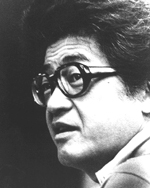 W
WKōbō Abe , pen name of Kimifusa Abe , was a Japanese writer, playwright, musician, photographer and inventor. Abe has been often compared to Franz Kafka and Alberto Moravia for his modernist sensibilities and his surreal, often nightmarish explorations of individuals in contemporary society.
 W
WMitsuo Aida was a Japanese poet and calligrapher known as The Poet of Zen. His work was influenced by Zen Buddhism and he is known for his works, Ningen damono, Okagesan, and Inochi ippai.
 W
WIkuma Arishima was the pen-name of Arishima Mibuma, a Japanese novelist and painter active in the Taishō and Shōwa period. He also used Utosei and then Jugatsutei as alternative pen names.
 W
WNaoyuki Uchida , who writes under his pen name Yukito Ayatsuji , is a Japanese writer of mystery and horror. He is one of the founders of Honkaku Mystery Writers Club of Japan and one of the representative writers of the new traditionalist movement in Japanese mystery writing. His wife is Fuyumi Ono, a Japanese fantasy and horror writer who is known for her fantasy series The Twelve Kingdoms.
 W
WShōchō Hagami was a great acharya (大阿闍梨) of Tendai Buddhism and one of the most prominent Japanese Buddhists of the 20th century. He served as President of the Japanese Religious Committee for World Federation and advocated the need for the cooperation of religious leaders, which transcends religious and denominational boundaries.
 W
WSakutarō Hagiwara was a Japanese writer of free verse, active in the Taishō and early Shōwa periods of Japan. He liberated Japanese free verse from the grip of traditional rules, and he is considered the "father of modern colloquial poetry in Japan". He published many volumes of essays, literary and cultural criticism, and aphorisms over his long career. His unique style of verse expressed his doubts about existence, and his fears, ennui, and anger through the use of dark images and unambiguous wording.
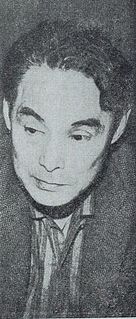 W
WYutaka Haniya was a noted Japanese author.
 W
WHarukichi Shimoi was a Japanese poet and writer.
 W
WKaitarō Hasegawa was a novelist in the early Shōwa period Japan. He wrote under numerous pen names, each with a unique personality, and caused a sensation with the sheer brilliance of his fiction, non-fiction and translations.
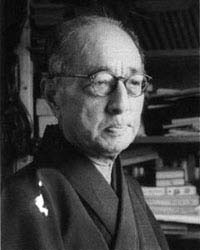 W
WKōnosuke Hinatsu was the pen-name of a Japanese poet known for his romantic and gothic poetry patterned after English literature. His real name was Kunito Higuchi.
 W
WJūran Hisao was the pen-name of a Japanese author of popular fiction in Shōwa period Japan. Hisao Jūran was a pioneer in the use of black humor in Japanese literature. His works reflect his extensive knowledge of a wide range of subjects, and displayed extraordinary skills, and range from mystery tales to humor, and both historical and contemporary settings. His real name was Masao Abe .
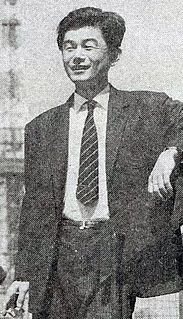 W
WShinichi Hoshi was a Japanese novelist and science fiction writer best known for his "short-short" science fiction stories, often no more than three or four pages in length, of which he wrote over 1000. He also wrote mysteries and won the Mystery Writers of Japan Award for Mōsō Ginkō in 1968.
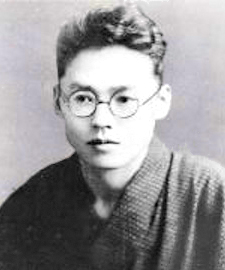 W
WMasuji Ibuse was a Japanese author. His most notable work is the novel Black Rain.
 W
WDakotsu Iida was a Japanese haiku poet from what is now part of the city of Fuefuki, Yamanashi, Japan. Commonly referred to as Dakotsu, his real name was Takeji Iida . He trained under Kyoshi Takahama, and was a frequent contributor to such haiku journals as Hototogisu (magazine) and Unmo. He was chief editor of Unmo until his death, upon which his son, the prominent haiku poet Ryuta Iida, took over as the editor of Unmo.
 W
WYasushi Inoue was a Japanese writer of poetry, essays, short fiction, and novels. Born in Asahikawa, Hokkaido in 1907, Inoue was raised in Shizuoka Prefecture.
 W
WJun Ishikawa was the pen name of a modernist author, translator and literary critic active in Shōwa period Japan. His real name was Ishikawa Kiyoshi.
 W
WYōjirō Ishizaka was an influential and popular novelist of post-World War II Japan.
 W
WTomoji Ishizuka was the pen-name of Ishizuka Tomoji, a Japanese haiku poet and novelist active during the Shōwa period of Japan.
 W
WMatsutarō Kawaguchi was a Japanese novelist, playwright and film producer active during the Shōwa period of Japan.
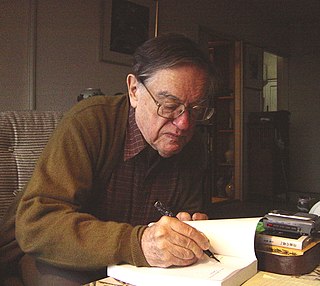 W
WDonald Lawrence Keene was an American-born Japanese scholar, historian, teacher, writer and translator of Japanese literature. Keene was University Professor Emeritus and Shincho Professor Emeritus of Japanese Literature at Columbia University, where he taught for over fifty years. Soon after the 2011 Tōhoku earthquake and tsunami, he retired from Columbia, moved to Japan permanently, and acquired citizenship under the name Kīn Donarudo . This was also his poetic nom de plume and occasional nickname, spelled in the ateji form 鬼怒鳴門.
 W
WHidemi Kon was a literary critic and essayist active in Japan during the Shōwa period.
 W
WMantarō Kubota was a Japanese author, playwright, and poet.
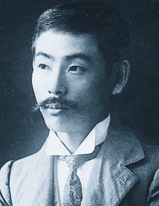 W
WDoppo Kunikida was a Japanese author of novels and romantic poetry during the Meiji period, noted as one of the inventors of Japanese naturalism.
 W
WShumon Miura was a Japanese novelist.
 W
WTatsuo Nagai was a writer of short stories, novels, and essays, active in the Shōwa period Japan, known for his portrayals of city life. Nagai was also known as a haiku poet under the pen-name of "Tomonkyo".
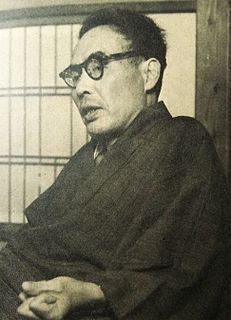 W
WGishū Nakayama was the pen-name of a Japanese writer active in Shōwa period Japan. His real name was Yoshihide Takama.
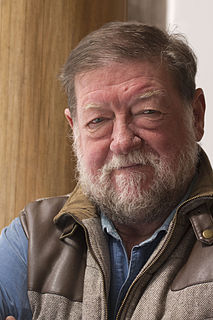 W
WClive William Nicol, MBE was a British-born Japanese writer, singer/songwriter, and actor. He was a long-time resident and citizen of Japan.
 W
WOtsuichi is the pen name of Hirotaka Adachi , born 1978. He is a Japanese writer, mostly of horror short stories, as well as a filmmaker. He is a member of the Mystery Writers of Japan and the Honkaku Mystery Writers Club of Japan.
 W
WTon Satomi is the pen-name of Japanese author Hideo Yamanouchi. Satomi was known for the craftsmanship of his dialogue and command of the Japanese language. His two elder brothers, Ikuma Arishima and Takeo Arishima, were also authors.
 W
WTatsuhiko Shibusawa was the pen name of Shibusawa Tatsuo, a novelist, art critic, and translator of French literature active during Shōwa period Japan. Shibusawa wrote many short stories and novels based on French literature and Japanese classics. His essays about black magic, demonology, and eroticism are also popular in Japan.
 W
WNaoya Shiga was a Japanese novelist and short story writer active during the Taishō and Shōwa periods of Japan.
 W
WTōson Shimazaki was the pen-name of Shimazaki Haruki, a Japanese author, active in the Meiji, Taishō and early Shōwa periods of Japan. He began his career as a romantic poet, but went on to establish himself as a major proponent of naturalism in Japanese fiction.
 W
WSion Sono is a Japanese filmmaker, author, and poet. Best known on the festival circuit for the film Love Exposure (2008), he has been called "the most subversive filmmaker working in Japanese cinema today".
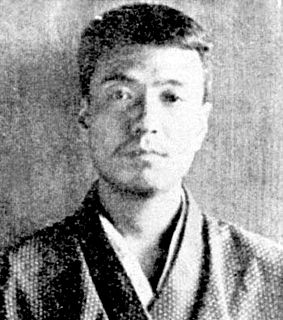 W
WKyoshi Takahama was a Japanese poet active during the Shōwa period of Japan. His real name was Takahama Kiyoshi (高浜清); Kyoshi was a pen name given to him by his mentor, Masaoka Shiki.
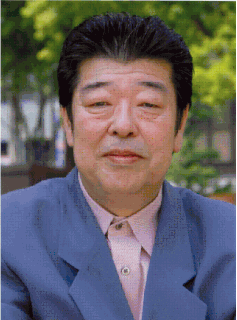 W
WKatsuhiko Takahashi is a Japanese writer of mystery, horror, science fiction and historical fiction. He is a member of the Mystery Writers of Japan.
 W
WMutsuo Takahashi is one of the most prominent and prolific male poets, essayists, and writers of contemporary Japan, with more than three dozen collections of poetry, several works of prose, dozens books of essays, and several major literary prizes to his name. He is especially well known for his open writing about male homoeroticism. He currently lives in the seaside town of Zushi, several kilometers south of Yokohama, Japan.
 W
WYukihide Takekawa is a Japanese singer-songwriter from Urawa-ku, Saitama, Saitama Prefecture. He is best known for being the vocalist to the band Godiego as well as his solo career and his work as an author. Some of his compositions have been featured in video game, anime, films, and television drama soundtracks. These include the Galaxy Express 999 film, Saiyūki, Genesis Climber MOSPEADA, Soul Blazer, and Choushinsei Flashman.
 W
WShūji Terayama was an Japanese avant-garde poet, dramatist, writer, film director, and photographer. His works range from radio drama, experimental television, underground (Angura) theatre, countercultural essays, to Japanese New Wave and "expanded" cinema.
 W
WShōtarō Yasuoka was a Japanese writer.
 W
WRiichi Yokomitsu was an experimental, modernist Japanese writer.
 W
WTekkan Yosano was the pen-name of Yosano Hiroshi, a Japanese author and poet active in late Meiji, Taishō, and early Shōwa period Japan. His wife was fellow author Yosano Akiko. Cabinet minister and politician Kaoru Yosano is his grandson.
 W
WCount Isamu Yoshii was a Japanese tanka poet and playwright active in Taishō and Shōwa period Japan. Attracted to European romanticism in his youth, his later works were more subdued.
 W
WJunnosuke Yoshiyuki was a Japanese novelist and short-story writer.
 W
WYumeno Kyūsaku was the pen name of Sugiyama Yasumichi , early Shōwa period Japanese author, Zen priest, post office director and sub-lieutenant. The pen name roughly means "a person who always dreams". His Dharma name was Goshin-in Gin'en Taidō-koji (悟真院吟園泰道居士). He wrote detective novels and is known for his avant-gardism and his surrealistic, wildly imaginative and fantastic, even bizarre narratives. His eldest son, Sugiyama Tatsumaru, was known as the Green Father of India.